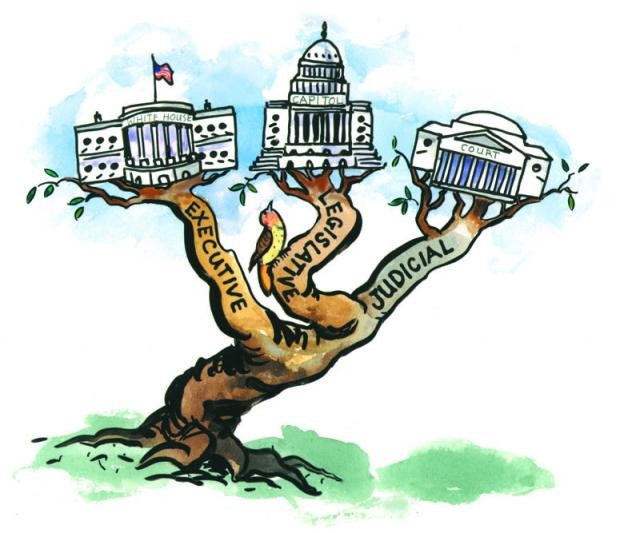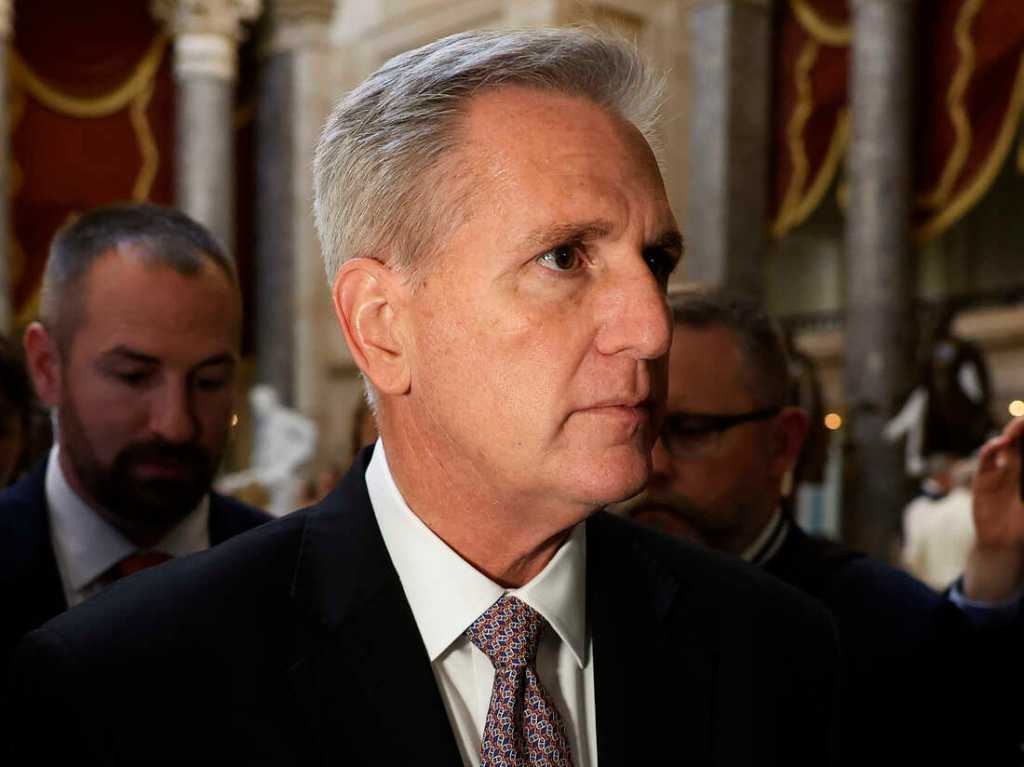January 26th 2023 | Yashas Mallikarjun
Edited by Raymond Gong
INTRODUCTION
For the first twenty years after the founding of the United States, the framers were hesitant to give power to a single individual, capable of unilaterally setting policy and forming a cult of personality. After the tyranny of King George, it seemed unfathomable that the people of the United States should create the same situation that created so much trouble for them in the first place. The Articles of the Confederation did not provide for a position of commander in chief or someone that administered congress’ will [1]. However, after Shay’s Rebellion and a litany of monetary issues with the newly born republic, it was clear that a new version of the United States government with a strong executive was needed [2]. And Article II of the 1789 modern constitution of the United States provided for exactly that [3].
The rest is history, throughout time the power of the executive and the executive state has only expanded. Every single law that is passed in the United States must be ‘faithfully carried out’ by the executive branch [4]; however, often these statutes contain provisions that explicitly grant the executive branch broad authority in the fields that congress wants to directly control policy. A key example of this is immigration law, where delegation of penalties and certain procedures fell onto the executive branch to enforce in whatever way they wanted [5]. From deferred action to parole in place orders, the administrative state had plenty of options to exercise in lieu of congressional legislation. We should see the growth of the administrative state not as a consequence of unfavorable court rulings, though it does play a part, but as something that was caused by congress itself. By refusing to create specific enforcement mechanisms and writing increasingly vague and ineffective statutes, congress left the administrative state scrambling (and expanding) in order to compensate.
- FROM REJECTION TO ACCEPTANCE
- The Nature of the Executive Branch
As explained in the introduction, the executive branch was written to be strong. And since the ratification of the constitution, it has only expanded in scope and power. Article II provided for authority to enforce all laws in the United States and sole control over the militia [6]. Another notable reflection of substantive executive authority is much of the case law surrounding the administrative state. The court ruling in Chevron v NRDC held that if congress has not explicitly legislated on an issue area, the lawmaking authority is referred to the executive branch. This standard, known as ‘Chevron Deference,’ has allowed the administrative state to expand to unprecedented levels, especially in areas which congress does not have the expertise to legislate on with precision [7]. Even though recent court decisions such as Hawaii v Maui and American Hospital Association v Beccera have been less amicable to Chevron, this doctrine still remains steadfast in the face of a conservative court [8].
The doctrine of ‘Chevron Deference’ and the scope of Article II is an important reflection of the nature of the executive branch. It has always had an edge on the other branches, explaining why so much emphasis has been placed on presidential elections since the founding of the United States. The president is not only the commander in chief, they are also the de-facto head of legislation, leading diplomat, and cultural head of the United States.
The executive branch of the United States is on a different level than other branches of the United States government, even though this seems antithetical to the interest of the United States government and its people. This concept of the executive having power to be de-facto ‘above the law’ is inevitable and has been true for decades. From illegal detention of hundreds of prisoners in Guantanamo Bay to Enhanced Interrogation, a litany of abuses were committed by the executive branch without any consequence [9]. The Foreign Intelligence Surveillance Act permits, even during peace times, the formation of a regime of domestic illicit surveillance through kangaroo courts under the executive branch. The FBI and CIA were able to effectively ask for surveillance of anyone in the United States without providing sufficient evidence for warrants, much less probable cause [10]. Simply put, the executive was always above the law. Where the US is headed now, there is little that can restrict this power. Any congressional action or court decision will be both unpopular and unlikely to curb much of the influence that the executive branch already has.
Given our current circumstance, restricting the executive would be too ambitious, instead we need to consider how to effectively utilize it, channeling executive authority into a force for good, potentially setting this country and the world forward at an exponential pace. Thus, I create a normative case for a more effective executive regime, with much better tools to both address ballooning issues in the 21st century and create sufficient internal checks and balances to prevent abuses of power within the branch.
- Technocratic Managerialism
Agencies simply have the expertise that congress lacks. Elected officials do not have any formal training or education over the agencies that they regulate. A body of authority that are experts over what they are regulating is in the best interest of Americans. Additionally, cutting out the congressional middleman potentially saves years that would be spent creating committees and moving legislation through both chambers. Applying the executive state as a technocracy could help create effective policy for important areas that demand expert and immediate regulation. Three of these areas are described below.
The most notable benefit of this managerialism is the executive branch’s newfound penchant for creating environmental policy. The executive is free to raise EPA standards, close down power plants, and even re-allocate funds within executive agencies to ensure these goals are possible. Regardless of the benefits, executive orders are not purely a replacement for durable congressional regulations. Executive orders can set industry floors that can push industries toward decarbonization [11]; however, inevitable rollbacks mean that many important issues require dual congressional engagement in a long-winded political process.
Another area in which agency expertise can go a long way is artificial intelligence.
Congressional legislators simply do not have the tools to create an effective regulatory regime for artificial intelligence. We have representatives that do not have any clue how social media operates, it is unlikely that they could create effective regulation over a more complex area in technology [12]. The executive branch should use its authority over Antitrust legislation in order to establish regulatory commissions on AI. Through this we should be able to create common sense limits to development and where AI can be used. Without these limits AI can be used to great lengths by corporations, putting consumers at a heavy disadvantage. For example, without regulation on price discrimination we can see a future where every single product is priced like airlines, where price for the same good varies from consumer to consumer relative to their different perceived demands. AI could even make use of your income in order to charge you a unique price on groceries that maximizes how much you were willing to pay [13]. Congressional representatives have little knowledge, nor the time, to legislate on an area as complex as pricing algorithms.
Moving to a more grounded area that could use effective regulation is scientific ethics. Gene editing is only continuing to be developed to levels that seem like we are almost playing God. Novel technologies like CRISPR have the potential to cure genetic diseases before a baby is conceived, but it also has the potential to allow people to design their children: controlling factors from height to skin tone [14]. However, congress most likely does not have genetics experts ready to write policy about CRISPR. However, executive agencies could establish regulatory commissions of these experts in order to write scientific and data driven policy about these areas.
- Preventing Executive Abuse
Whatever I argue for above, is already permissible in the current scope of case law and legislation about the executive branch. Nothing is surpassing existing boundaries of executive authority, just utilizing it effectively.
This might seem like the creation of a dictatorial regime without any checks and balances between the branches of the federal government. However, this understanding of executive jurisdiction does not overstep boundaries, but instead utilizes its constitutional power of faithfully executing current statutory responsibilities of ensuring clean air and water. If congress seeks to curb this authority, they can explain to the American people why they are repealing significant and popular pieces of legislation in the history of the United States such as the The Clean Air Act and the Sherman Antitrust Act. Additionally, I still believe there are still sufficient internal and external checks for the executive branch.
As always, the courts are still an effective external check back on Executive overreach that I might seem to be justifying under this model. The courts are currently amicable to the current expansive interpretation of the United States constitution that allows the Executive to carry out all the actions that I have described above [15]. However, dictatorial steps or direct decisions to sideline Congress by taking appropriation or over-exercising war making authority are explicitly not within the bounds of the Executive Branch and will not be permissible under current case law.
Of course, other internal checks that have proven quite significant and effective still exist. Inspector generals and agency watchdogs have proven time and time again as effective third parties that will report whenever the executive branch has any misuses [16]. The American political culture, at least within agencies, remains decidedly nonpartisan, making policies with the best outcomes.
A great reflection of this is the United States Department of Defense. which has a reputation of avoiding partisan backlash and skepticism- contrary to what one might think. Even though the military conducted massive abuses of power during the war on terror, these missteps were uncovered and ultimately addressed. No matter how much you argue that the abuse of prisoners at Abu Ghraib was a result of a lack of congressional oversight, internal checks would be more likely to prevent the event from actually happening. Congressional oversight would be after the fact is nothing more than partisan political theater aimed at painting the President’s party as unable to govern. However, internal oversight uncovered this misuse of power, and the perpetrators were disciplined accordingly [17]. Following this, the executive branch under the following administrations took steps in order to prevent situations such as Abu Ghraib from occurring again [18].
American political culture is safe, and our public servants are more than willing to do the difficult job of working in the office of the Inspector General. Empowering these 3rd party internal watchdogs can effectively prevent the abuse of power within the executive branch without curbing Executive power in favor of Congress.
CONCLUSION
The executive branch is an important part of our future. A future in which the executive branch is restructured such that it has more latitude to carry out mandates that were received by Congress in landmark statutes is key to keep the United States as a frontrunner on the world stage. With immeasurable technological growth in many areas during the 21st century, we need regulators that can keep up with the fluid and technical nature of these areas. The only way that this can happen is we clarify the responsibilities of the executive branch.
Yashas Mallikarjun is a freshman at Johns Hopkins University.
Sources:
[1] “The Articles of Confederation.” US House of Representatives: History, Art & Archives, https://history.house.gov/Historical-Highlights/1700s/The-Articles-of-Confederation/.
[2] “On This Day, Shays’ Rebellion Starts in Massachusetts.” National Constitution Center – Constitutioncenter.org, https://constitutioncenter.org/blog/on-this-day-shays-rebellion-starts-in-massachusetts#:~:text=On%20this%20day%20in%201786,the%20following%20year%20in%20Philadelphia.
[3]“Inventing Black and White.” Facing History and Ourselves, https://www.facinghistory.org/resource-library/inventing-black-and-white#:~:text=In%20September%201676%2C%20Bacon’s%20militia,had%20destroyed%20the%20colonial%20capital.
[4] “Article II, Section 3.” National Constitution Center – Constitutioncenter.org, https://constitutioncenter.org/the-constitution/articles/article-ii/clauses/348#:~:text=The%20Take%20Care%20Clause%20modifies,under%20the%20Articles%20of%20Confederation.
[5] National Immigration Law Center – NILC, http://www.nilc.org/wp-content/uploads/2015/11/president-legal-authority-2014-08-20.pdf.
[6] “Article II, Section 3.” National Constitution Center – Constitutioncenter.org, constitutioncenter.org/the-constitution/articles/article-ii/clauses/348#:~:text=The%20Take%20Care%20Clause%20modifies,under%20the%20Articles%20of%20Confederation.
[7] “Chevron Deference.” LII / Legal Information Institute, http://www.law.cornell.edu/wex/chevron_deference.
[8] Bagchi, Aysha. “Thomas Dissent Latest Sign in Battle over Chevron Deference.” Bloomberg Tax, 25 Feb. 2020, https://news.bloombergtax.com/daily-tax-report/thomas-dissent-latest-sign-in-battle-over-agency-rulemaking-power.
[9] “Top Ten Abuses of Power Since 9/11.” American Civil Liberties Union, http://www.aclu.org/other/top-ten-abuses-power-911.
[10] “Surveillance Court Finds FBI Repeatedly Misused FISA Program to Conduct Unlawful Surveillance of Americans.” EPIC – Electronic Privacy Information Center, epic.org/surveillance-court-finds-fbi-repeatedly-misused-fisa-program-to-conduct-unlawful-surveillance-of-americans/.
[11] Elizabeth Shogren DC Dispatch Analysis April 17, 2017 From the print edition Like Tweet Email Print Subscribe Donate Now. “Should Courts Defer to the Expertise of Agencies?” High Country News – Know the West, 17 Apr. 2017, https://www.hcn.org/issues/49.7/dc-dispatch-should-courts-defer-to-federal-agencies-our-new-supreme-court-justice-doesnt-think-so.
[12] Wise, Alana. “What Sen. Blumenthal’s ‘Finsta’ Flub Says about Congress’ Grasp of Big Tech.” NPR, NPR, 4 Oct. 2021, https://www.npr.org/2021/10/04/1043150167/sen-blumenthals-finsta-flub-renews-questions-about-congress-grasp-of-big-tech.
[13] AI Algorithms, Price Discrimination and Collusion: A Technological … https://orbi.uliege.be/bitstream/2268/250255/1/Gautier2020_Article_AIAlgorithmsPriceDiscriminatio.pdf.
[14] “Designer Babies: An Ethical Horror Waiting to Happen?” The Guardian, Guardian News and Media, 8 Jan. 2017, https://www.theguardian.com/science/2017/jan/08/designer-babies-ethical-horror-waiting-to-happen.
[15] Bazelon, Emily, and Eric Posner. “The Government Gorsuch Wants to Undo.” The New York Times, The New York Times, 1 Apr. 2017, https://www.nytimes.com/2017/04/01/sunday-review/the-government-gorsuch-wants-to-undo.html.
[16] “The Pentagon Could Save Billions of Dollars by Fixing Problems It Already Knows About.” Government Executive, 7 Aug. 2018, http://www.govexec.com/management/2018/08/pentagon-could-save-billions-dollars-fixing-problems-it-already-knows-about/150347/.
[17] “THE STRUGGLE FOR IRAQ: THE MILITARY; 6 G.I.’s in Iraq Are Charged With Abuse Of Prisoners (Published 2004).” The New York Times – Breaking News, US News, World News and Videos, 21 Mar. 2004, http://www.nytimes.com/2004/03/21/world/struggle-for-iraq-military-6-gi-s-iraq-are-charged-with-abuse-prisoners.html.
[18] “Biden Administration Aims To Close Guantanamo Bay Prison.” NPR.org, 12 Feb. 2021, http://www.npr.org/2021/02/12/967480526/biden-administration-aims-to-close-guantanamo-bay-prison.
Photo Credit: Medium




Leave a comment